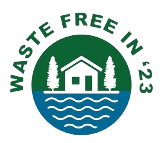Enhancing Cereal Seedling Growth with Organic Fertilizers: An Easy Comprehensive Summary
A recent study by Carroll et al. (2023) explored the effects of two organic soil amendments—insect frass fertilizer and biochar—on the growth of cereal seedlings. The findings offer valuable perspectives on sustainable agriculture practices, highlighting both economic and environmental benefits.
Key Findings
Insect Frass Fertilizer:
- Growth Enhancement: Applying low quantities of insect frass fertilizer, derived from black soldier fly waste, led to significant increases in shoot growth across four cereal species: barley, oats, triticale, and spelt.
- Nutrient Uptake: There was an increase in foliage concentrations of essential nutrients—nitrogen (N), phosphorus (P), and potassium (K)—as well as higher chlorophyll density, indicating improved plant health.
- Optimal Conditions: These benefits were most pronounced in soils with low baseline nutrient levels.
- Overapplication Risks: Excessive use of insect frass led to reduced growth and, in some cases, seedling mortality, emphasizing the importance of appropriate application rates.
Biochar:
- Growth Impact: The study tested biochar produced from various feedstocks, including Ulex, Juncus, woodchip, and olive stone. There were no consistent positive or negative effects on cereal shoot growth.
- Soil Health: While immediate growth benefits were limited, biochar’s potential for long-term soil carbon storage suggests environmental advantages not directly measured in this study.
Economic Benefits
- Cost-Effective Fertilization: Utilizing insect frass as a fertilizer can reduce reliance on synthetic fertilizers, leading to cost savings for farmers.
- Waste Valorization: Repurposing insect waste into fertilizer adds value to by-products, creating additional revenue streams and promoting a circular economy.
Environmental Benefits
- Sustainable Nutrient Cycling: Insect frass provides a natural source of nutrients, enhancing soil fertility without the environmental drawbacks associated with synthetic fertilizers.
- Soil Carbon Sequestration: Although biochar did not significantly impact immediate plant growth, its application contributes to long-term carbon storage in soils, mitigating greenhouse gas emissions.
Conclusion
The study indicates that insect frass fertilizer can effectively enhance cereal seedling growth in nutrient-poor soils when applied appropriately, offering both economic and environmental advantages. Biochar, while not immediately boosting plant growth, holds promise for long-term soil health and carbon sequestration. These findings support the integration of organic amendments into sustainable farming practices.
Reference: Carroll, A., Fitzpatrick, M., & Hodge, S. (2023). The Effects of Two Organic Soil Amendments, Biochar and Insect Frass Fertilizer, on Shoot Growth of Cereal Seedlings. Plants, 12(5), 1071.
Got questions?
